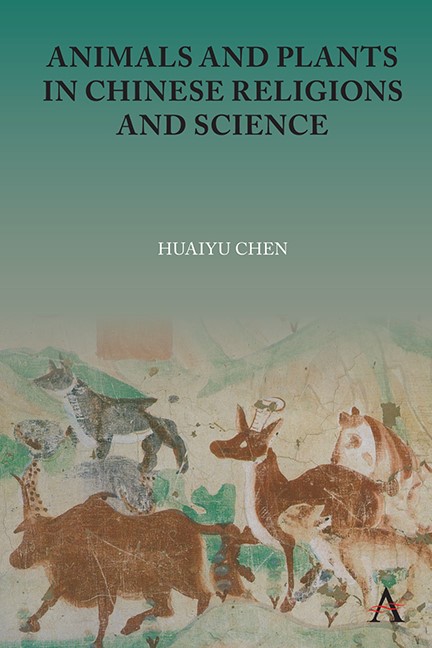Book contents
- Frontmatter
- Contents
- Acknowledgments
- List of Illustrations
- Introduction
- 1 Plant Science and Technology in Medieval China
- 2 Ordering Plants in the Buddhist World: A Medieval Botanical Taxonomy
- 3 Animal Divination and Climate: An Environmental Perspective on the Cult of the Pig
- 4 Zoomancy in Medieval China
- 5 The Changing Images of Zodiac Animals in Medieval Chinese Buddhist Literature
- 6 The Were-Tigers in Medieval China and Its Asian Context
- 7 The Animal Turn in Asian Studies and the Asian Turn in the Animal Studies
- Bibliography
- Index
4 - Zoomancy in Medieval China
Published online by Cambridge University Press: 15 November 2023
- Frontmatter
- Contents
- Acknowledgments
- List of Illustrations
- Introduction
- 1 Plant Science and Technology in Medieval China
- 2 Ordering Plants in the Buddhist World: A Medieval Botanical Taxonomy
- 3 Animal Divination and Climate: An Environmental Perspective on the Cult of the Pig
- 4 Zoomancy in Medieval China
- 5 The Changing Images of Zodiac Animals in Medieval Chinese Buddhist Literature
- 6 The Were-Tigers in Medieval China and Its Asian Context
- 7 The Animal Turn in Asian Studies and the Asian Turn in the Animal Studies
- Bibliography
- Index
Summary
Introduction
In the historical context of ancient China, there was no single text solely devoted to zoomancy, if we understand zoomancy, or divination by animals, as a method of prediction by observing animal behaviors. As a prevalent divination technique in premodern China, zoomancy was popular among both elite and lower classes. However, it was not the primary technique utilized by the royal diviners (taibu 太卜) who served in the court to assist the rulers in making decisions on political and military affairs. It was more common in random events when the elite and lower classes observed phenomena and then associated those phenomena with unusual animal behaviors. The authority of interpreting these unusual animal behaviors did not necessarily reside with professional diviners who held appointments in the court, but rather with any civil and military officials who might know about zoomancy. In other words, unlike oracle bone divination, zoomancy was not professionalized or monopolized by professional diviners in ancient China.
The philosophical and intellectual foundation of zoomancy was correlative thinking, which refers to the ancient belief that natural phenomena were associated with human behaviors and social events. For example, rulers believed that their statecraft and governance were connected with the movements of the cosmos, including various natural phenomena and animal behaviors. If their governance was virtuous, there would be auspicious signs from natural phenomena, and animals would respond with certain behaviors as a verification. If a ruler was about to die or a regime was about to fall, there were bad omens from nature, including unusual animal behaviors.
Zoomancy in China has a long history, which can be traced back to the Spring and Autumn period (771–476 BCE), at the latest. According to Zuo Qiuming’s 左丘明 (556–451 BCE) alleged fourth century BCE Zuo’s Commentary on the Spring and Autumn Annals (Chunqiu Zuozhuan 春秋左傳), in 555 BCE, during a war between the states of Jin 晉 and Qi 齊, Shi Kuang 師曠 (ca. 572–532), a talented musician who served the Marquis of Jin 晉侯, heard the joyful sound of birds and told the Marquis that this sort of sound indicated the withdrawal of the Qi troops.
- Type
- Chapter
- Information
- Animals and Plants in Chinese Religions and Science , pp. 77 - 96Publisher: Anthem PressPrint publication year: 2023

